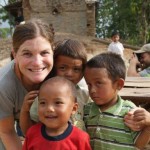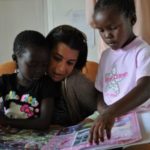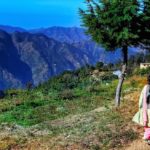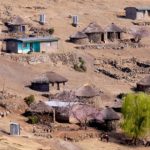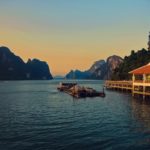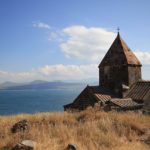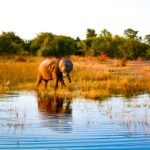Digging Deeper in Nicaragua
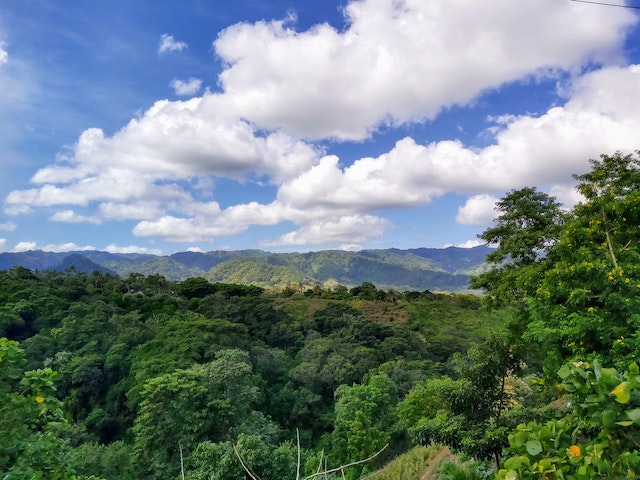
So hungry. I fidgeted with my utensils waiting for everyone else to sit down so I could finally tend to the pangs in my stomach. The long table was set for fifteen, bowls of rice interspersed with bowls of beans. It was basic food, fitting for my primal cravings. In my normal life, I was accustomed to hunger as function of the clock: If it was time to eat, then I was hungry. But here, in Diriamba, Nicaragua, I was becoming acquainted with eating to sustain my body for the sake of physical labor.
I had come with a cohort of college students for a week-long service trip. We were working alongside locals from a farming cooperative helping them build a well to provide water for surrounding farmland. When we first arrived at the site and took a look around, we were surprised to find a 15-foot deep nearly-complete pit, wondering why they’d gone and dug a well without us. Next to the pit was a mountain of dirt and rocks, and we soon understood that our role that week was not to dig a well, but to move a dirt pile 100 meters using shovels and wheelbarrows. Undeterred, we set out to move that dirt to the best of our nascent ability.
Digging Deeper in Nicaragua.
The farmers were perplexed at the composition of our group. We were 10 college students and a chaperone, three men and eight women. It must have been hard for them to picture our majority female cohort lifting rocks and carting laden wheelbarrows back and forth in the unfamiliar, unrelenting heat. Nevertheless, every morning we would each take a shovel and dig in. We continued to be a source of intrigue for the locals, but as the week progressed and the dirt pile shrunk, they seemed to accept our foreign ways and just be glad for the company.
We loved their company, too. Though most of us had a very inadequate command of Spanish, we tried to learn more about the community and the lives of the good-natured people we worked alongside every day, finally understanding who was whose son or sister and who was married to whom. The women teased us and were appalled at our incompetence using a washboard to do laundry by hand. Among the farmers, we especially took a liking to young, clean shaven Tomás, whose shy smile made the women in our group swoon in unison.
It must have been hard for them to picture our majority female cohort lifting rocks and carting laden wheelbarrows back and forth in the unfamiliar, unrelenting heat.
Our base was an open building, comprised of two shed-like structures attached by a metal roof. One of the sheds housed a kitchen, and the other was where we slept. Each morning, I woke at dawn, stumbling out of the shed to watch the quiet sunrise. The sky itself was familiar, but as my eyes moved down the horizon, everything became dirt roads and dust, the dull film covering houses, cows, and soccer balls. I couldn’t fathom how my world of snow drifts, computers, and pavement could exist alongside this place.
We worked in the morning, took a break for lunch, and worked again in the afternoon. The hunger from lunchtime returned in the evening, and it seemed like no amount of rice and beans was enough to keep up with this degree of physical exertion. With each shovel-ful of dirt and dump of a wheelbarrow, I understood more and more what the human body had evolved to do. At night, I laid out my sweaty clothes to wear again the next day and fell asleep immediately, exhausted. The farmers who dug the well started their day an hour before we did and finished an hour later.
Through my halting Spanish, I understood that many of them worked Monday through Friday and took classes on Saturdays, doing their homework on week nights after the full day of physical labor.
Check out Pink Pangea’s Writing, Yoga, and Meditation Retreats.
On one of our last days, we changed out of our work clothes and visited a village near the well we were building. The houses were one- or two-room metal shacks, and attached to many were wire fences, enclosing small pens for animals. Trees with deep green leaves and ripe fruit lined the dirt paths, connecting the houses to the main road. Tomás appeared outside his house in a blue button-up shirt, and we immediately regressed to giggling teenagers.
The luxuries of the developed world come at a price. Better transportation, better medicine, more privacy, more solitude, more loneliness.
As I saw more of life in this impoverished, developing, hard-working town, for the first time (but not the last since), I compared what I saw to where I was from. By definition, a “developing” area aims to eventually be developed. I tried to imagine whether their lives would be happier or more fulfilling if their town were more like mine. It was easy to look around at the structures that could be destroyed by an unfortunate weather event and feel lucky for my home. But adversity often breeds community, and where I’m from, community itself can be a scarce resource. The luxuries of the developed world come at a price. Better transportation, better medicine, more privacy, more solitude, more loneliness.
I didn’t know how to leave. I’d never bade a place farewell knowing I might never come back. We took pictures and exchanged some information, but my Spanish wasn’t good enough to sustain long distance relationships. I felt heavy driving away from Diriamba.
That trip was over six years ago. The image of the people we met has stayed with me, people who know how to work for a better life. I still wonder what it means for life to be better.
Photo credit by Unsplash.

